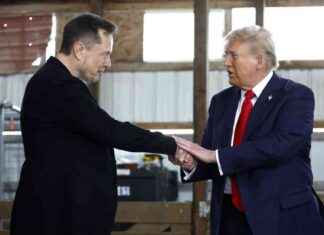Abu Dhabi: Muslim nations should solve their own internal problems before dealing with the US immigration ban on citizens of seven Muslim countries, a top UAE official said here on Wednesday.
Some of the seven Muslim nations whose citizens affected by the US immigration ban are facing internal challenges and they have to deal with those challenges before they deal with the US, said Shaikh Abdulla Bin Zayed Al Nahyan, Minister of Foreign Affairs and International Cooperation.
The US decision was a temporary one, which would be revisited after three months, he said at a press conference while answering a question on the US President Donald Trump’s decision to temporarily ban visas to refugees and visitors from seven Muslim countries.
Shaikh Abdullah said the US was within its rights to take what he said was a “sovereign decision” concerning immigration. All nations have the right to take decisions under their sovereignty and this US decision is on the same lines, he said. “The is a temporary ban and it will revised in three months, so it is important that we put into consideration this point,” he said.
The minister said he did not believe that the US decision was against a particular religion because majority of the Muslim countries were not in the list of countries whose citizens were affected.
Trump’s Friday decision put a hold on allowing refugees into the United States and temporarily barred visitors from Syria and six other Muslim-majority countries. Trump claimed the move would help protect Americans from terrorists.
The order limiting entry on visitors from Syria and six other Muslim-majority countries is for 90 days. The six other countries that face the restrictions are Iran, Iraq, Libya, Somalia, Sudan and Yemen, the White House said.
Russian Foreign Minister, Sergey Lavrov, and Ahmed Abu Al Ghait, Arab League Secretary-General, also addressed the press conference after the Arab- Russia Dialogue, which was held in the capital, on Wednesday.
The Russian minister suggested Syria’s return to Oleybet the Arab League, pointing out that it would help the league find a political solution to the ongoing civil war in Syria. He said the organisation could play a more effective part if the Syrian regime was part of the league. Russia is an important ally of Bashar Al Assad-regime and a key player in the ongoing peace efforts.
Lavrov pointed out the contradiction that Syria could not be part of talks inside the Arab League [since suspension of Syria in 2011], despite being a member of the UN. He said this would not help the peace process.
However, the Arab League chief said Syria’s return was yet to be considered by the 21-member organisation. It was not on the league’s agenda at the moment and would be considered once the possibility of peace emerged in Syria, Al Ghait said.
Answering a question on the Trump’s proposal to create safe zones for refugees in Syria and Yemen, the Russian Foreign Minister said Americans were interested in reducing the number of refugees from Syria to the west. He reminded the failure of a similar move in Benghazi in Libya in the past. “They have to look at that experience in the past. It was very sad.”
Lavrov said Russia was willing to re-establish regular dialogue with the United States to achieve pragmatic results in Syria, Libya and Yemen.
He said such moves would not be dictated by any ideologies, referring to the US claims in the past about establishing democracies as an ‘ideological reason’ to overthrow dictatorship regimes of Saddam Hussain in Iraq and Muammar Gaddafi in Libya.
Lavrov accepted a proposal from Al Ghait to conduct next Arab-Russia dialogue in St Petersburg.
Shaikh Abdulla said the dialogue was a good opportunity to discuss cooperation with Russia.
Our editors found this article on this site using Google and regenerated it for our readers.





